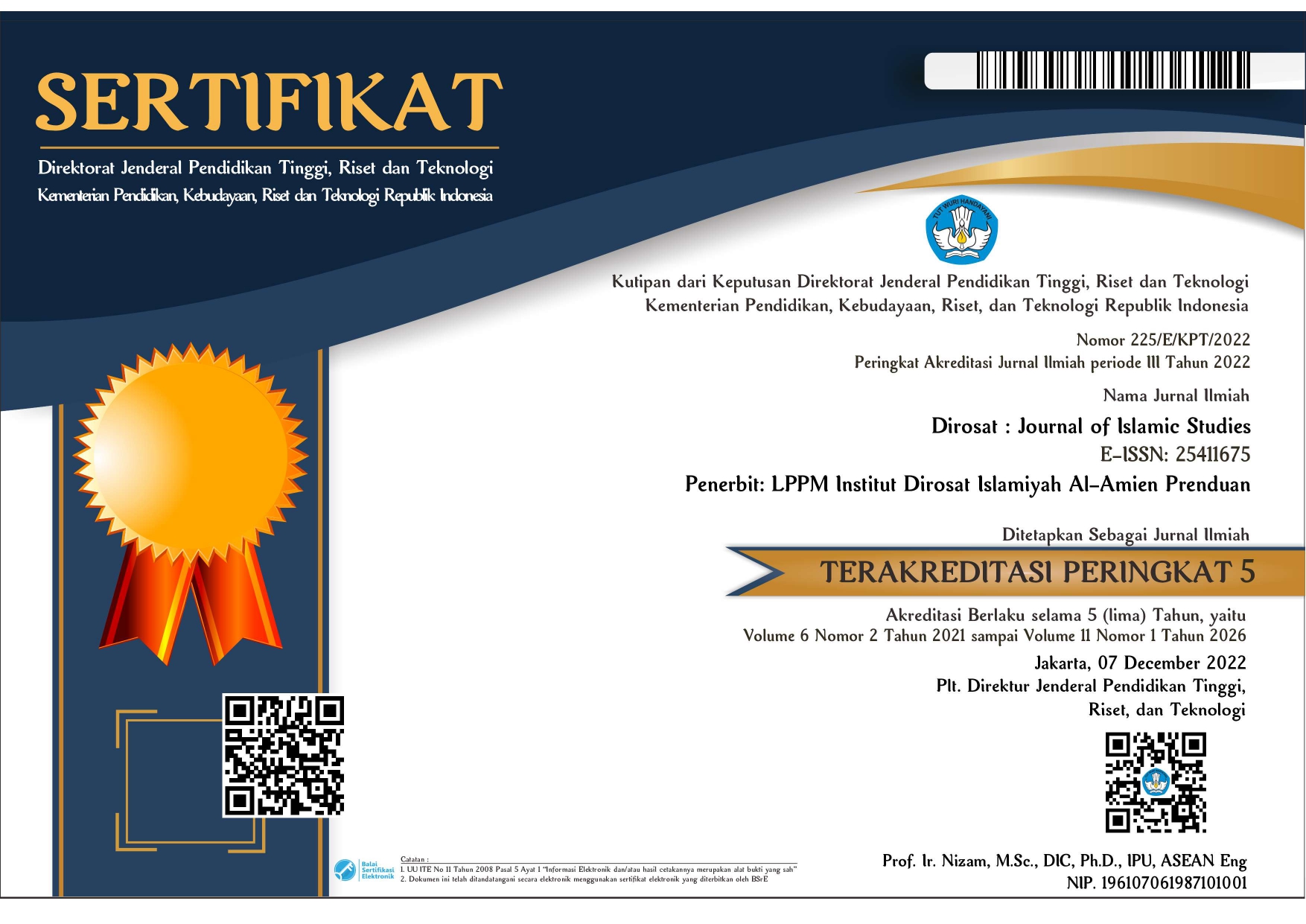- Home
- Vol 3, No 1 (2018)
- Triatmo
A MODEL OF EMPOWERMENT OF A POOR COMMUNITY BASED ON SOCIAL RESPONSIBILITY WITH ISLAMIC VALUES
Agus Wahyu Triatmo, Ravik Karsidi, Drajat Tri Kartono, Suwarto Suwarto
Abstract
Empowering the poor is the responsibility of all members of society, not just the government. Muslims, as the majority in Indonesia, should play a significant role in poverty alleviation. Zakat, infak and sedekah (ZIS), in the teachings of Islam, is not just worship because, if managed properly, it can be a solution to poverty. To date, the management of ZIS as a mechanism for change in society has not been optimal due to various factors, one of which is a poor management model. Therefore, this article presents a model of empowerment of the poor based on social responsibility with the integration of Islamic values. This article is based on research conducted at Yayasan Solo Peduli Umat. The research data are obtained from the managers of Solo Peduli, beneficiaries and other parties involved. The results of this study indicate that the integration of Islamic values with the concept of social responsibility can maximize the empowerment of the poor. An empowerment model is created to increase the number of entrepreneurs who diligently worship and have noble morality (akhlaqul karimah), increase the independence and welfare of the poor, ensure the continuity of network-based businesses between musthik and muzaki/ donatur, and provide sustainable donations to be used as capital for social transformation
Keywords
Social responsibility; Islamic values; Empowerment; Poor; Islamic Philanthropy
References
Gazalba, S. (1983). Masjid Sebagai Pusat Ibadat dan Kebudayaan Islam. Jakarta: Pustaka Antara.
Huda, N., Novarini, & Mardoni, Y. (2015). Zakat Perspektif Mikro-Makro Pendekatan Riset. Yogyakarta: Prenada Media.
Nasution, H. (1990). Islam Rasional Gagasan dan Pemikiran Prof. Harun Nasution. Bandung: Mizan.
Patmawati Ibrahim. (2006). Economic Role Of Zakat In Reducing Income Inequality And Poverty In Selangor. UNIVERSITI PUTRA MALAYSIA.
Tantoro, S. (2014). Pembasmian Kemiskinan. Yogyakarta: Pustaka Pelajar.
Wahid, A. (2005). Kasus Penafsiran Ulang Yang Tuntas (Pengantar untuk buku Masdar Farid Masudi). Bandung: Pustaka Mizan.
Watt, M. (1990). Kejayaan Islam Kajian Kritis dari Seorang Orientalis. Yogyakarta: Wacana, Tiara.
Yeager, T. J. (1999). Institutions, Transition Economies, and Economic, The Political Economy of Global Interdependency Development. Colorado: Westview Press.
Full Text:
PDF
DOI:
10.28944/dirosat.v3i1.155
Refbacks
- There are currently no refbacks.

This work is licensed under a
Creative Commons Attribution-NonCommercial-ShareAlike 4.0 International License.









